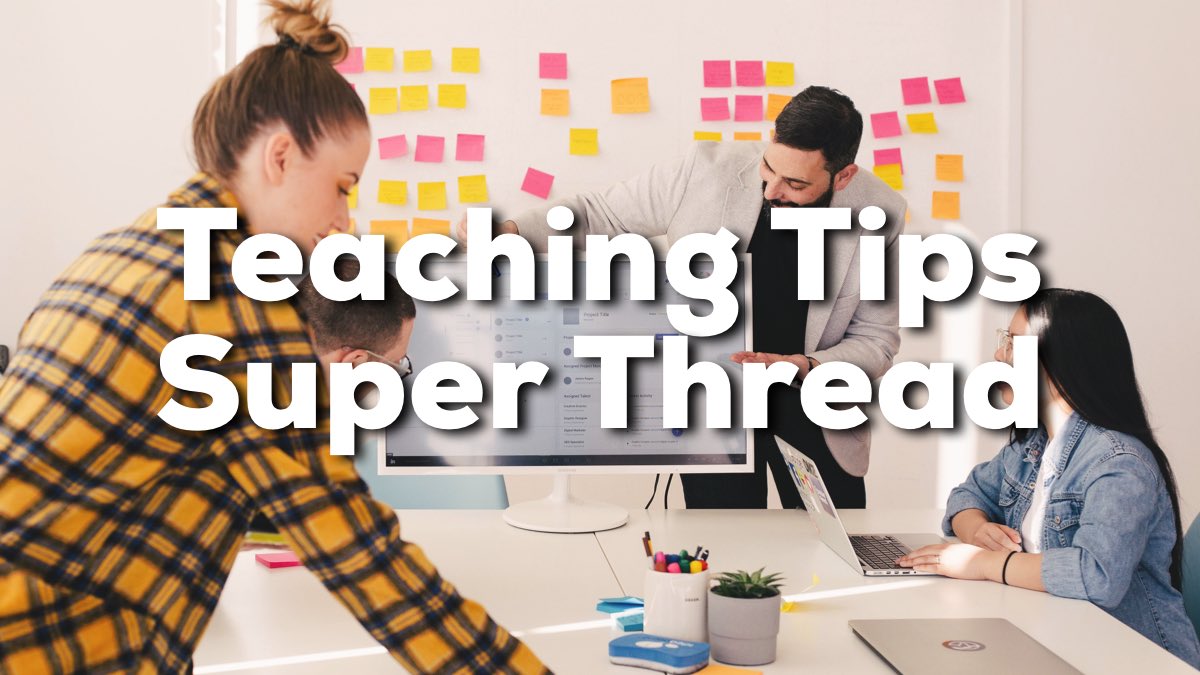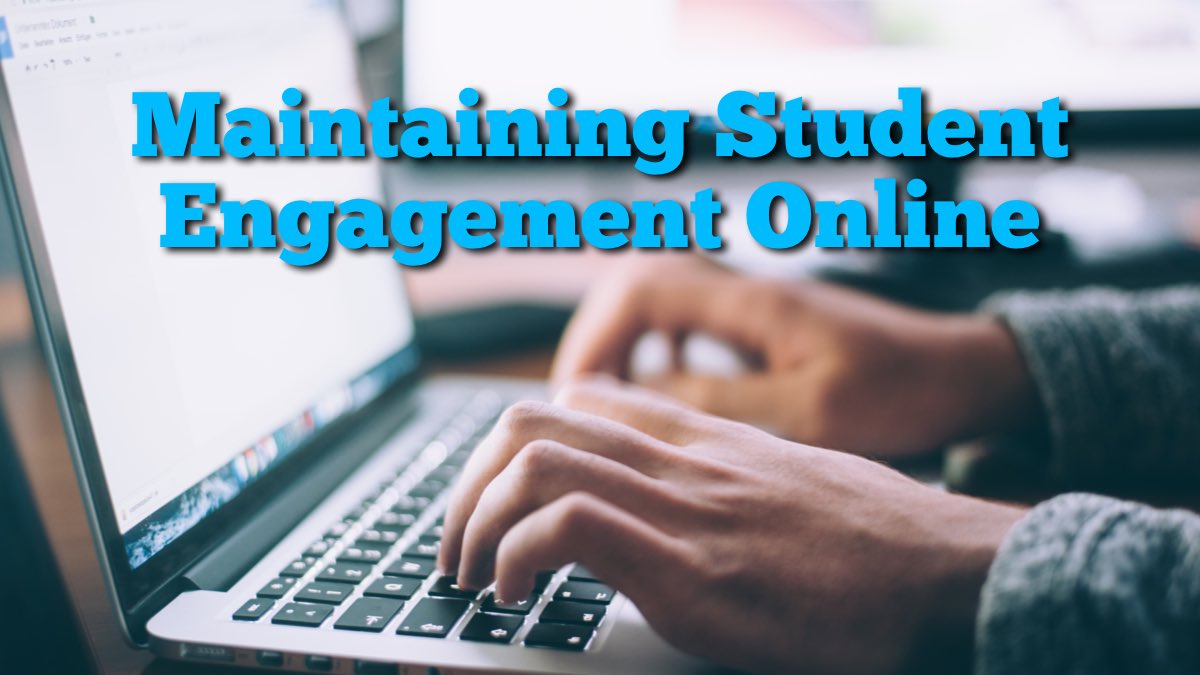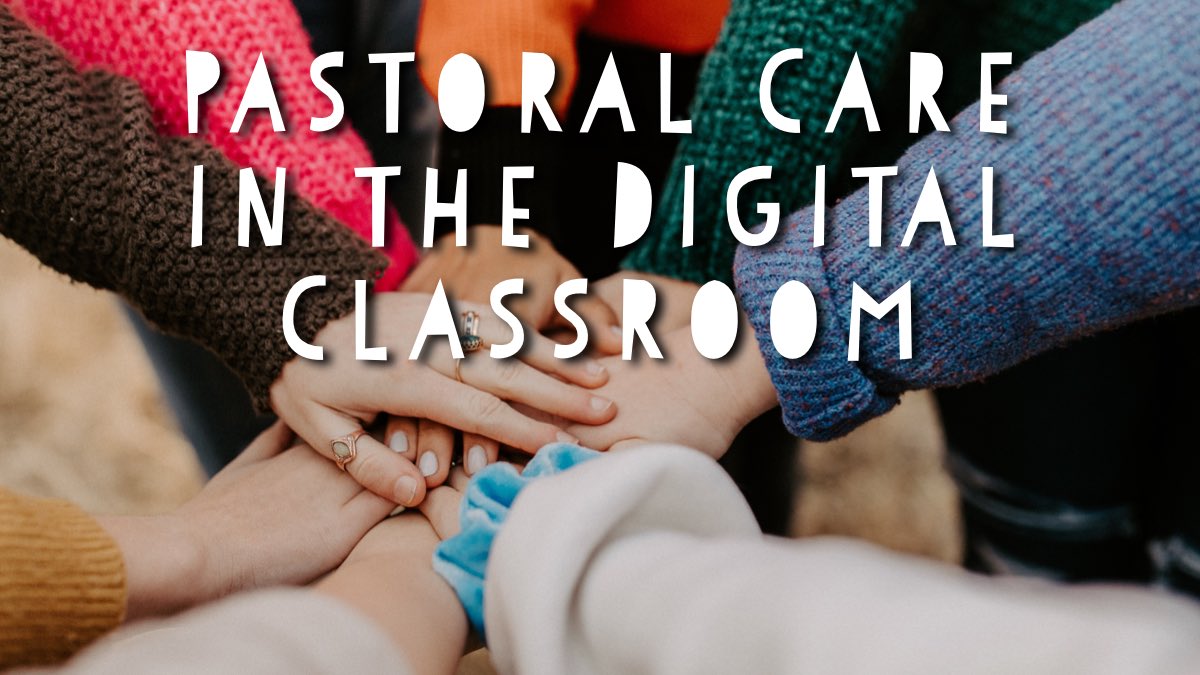
[Face to Face Apprehension Thread]
After 18 months teaching online I recently taught my first face to face "large" lecture as part of the @UniofLincolnSWC WOW summer school. Honestly, I had forgotten how much I loved delivering an in-person session. But it made me think [1/20]
After 18 months teaching online I recently taught my first face to face "large" lecture as part of the @UniofLincolnSWC WOW summer school. Honestly, I had forgotten how much I loved delivering an in-person session. But it made me think [1/20]
Firstly, the student's were clearly apprehensive themselves. Many new students, will have spent much of the last two years online or in small isolated bubbles. University transition is challenging for most students, but next years will come with a unique experience [2/20]
Current students, will have had the vast majority of their university experience online. Many will find the transition back to majority face to face learning especially difficult and will need some support to make that transition. [3/20]
I appreciate that a) some programmes have stayed largely face to face (medical for example) and b) some universities are choosing to stay largely online for the first semester. But these seem to be the exception rather than the rule [4/20]
I am also not making an argument for or against F2F, Blended, or Online learning in the current context. Or any argument about government pandemic policy, or when the return to F2F should be. Simply noting that it is coming and people will be anxious about it [5/20]
These are some things I will personally be doing to try and support students through this period of transition. I don't know how effective this will be, I've never had to consider this before... but it is based on what I do with transition anyway [6/20]
Idea 1 / Students have been able to flick between online sessions. The logistics of moving between timetabled slots will be new, and even navigating the campus will (for many) be unfamiliar. I'll be using the first 5 mins of my sessions for discussion [7/20]
and pastoral engagement to try and give a little flexibility to those who take a little longer to move between activities. I'll also be using this time to help them settle into face to face behaviours and encouraging confidence in speaking and participating [8/20]
Idea 2 / I'll be setting out clear "rules of engagement" for face to face sessions, and signposting how I expect students to engage and participate in those spaces. Many will have to learn or re-learn how to engage in a lecture. So I'm going to be explicit about it. [9/20]
Idea 3 / Many anxieties will not be inherently COVID related. But will be about reforming friendships, being in new spaces, and worries that will have developed during isolation. I will include more community activities and icebreakers to help build social communities [10/20]
Idea 4 / I'm going to be using a lot more discussion points in my lectures, and make space by moving some theory into asynchronous learning. Again, I want to use my learning space to help learners develop confidence in interaction and collaboration. [11/20]
Idea 5 / I will try to be open about my own anxieties. I want students to know that I understand their concerns and make it clear that they can discuss them with me. I will try to normalise discussion and encourage people to seek help when they need it. [12/20]
Idea 6 / Some students will be rightly concerned about the ongoing pandemic and the potential risk it poses. I'll be reminding students about the things they can do to protect themselves, and reminding them where hand washing and sanitising facilities are. [13/20]
Idea 6 / I will signpost the excellent support that exists through my colleagues at @UniofLincolnSWC, and the SU @ulsu_wellbeing , and our own peer mentors and tutors. I will try to show students how broad their community is, and that there is always someone there to help [14/20]
I think the defining paradigm of 21/22 needs to be the "pedagogy of compassion". Embedding empathy, support, signposting, and structure around everything we do to ease anxieties, and support transition back into university. [15/20]
I also think a lot about my colleagues. Many will have their own anxieties about returning to normal activities. I will do my best to check in with colleagues I haven't seen in a while, and will do my best to make myself available for a chat when needed [16/20]
I'm not a line manager, the best I can offer my colleagues is compassion, understanding, and empathy. I have been very grateful to everyone who has offered me a friendly ear over the past 18 months, and I will continue trying to offer the same in return. [17/20]
While we can debate government timelines etc, I think that most people want to return to some level of normality. I personally am excited to start doing more face to face sessions with my students.. and that is the impression Im picking up from most people [18/20]
But we need to go into this honestly and with our eyes open, accepting that there is going to be a period of transition, we need to overcome varying levels of anxiety and continue with every effort to keep each other as safe as we can. [19/20]
Even if COVID was eradicated tomorrow, our HE communities' mental health will still need to be carefully supported. Staff, Students, and everyone in-between need to work together to help each other through this period of transition. [20/Done]
If anyone is interested in these ideas. There are whole streams on wellbeing, and learning communities at the Practical Pedagogy conference.
https://twitter.com/ChrisHeadleand/status/1428717152970985484
• • •
Missing some Tweet in this thread? You can try to
force a refresh








